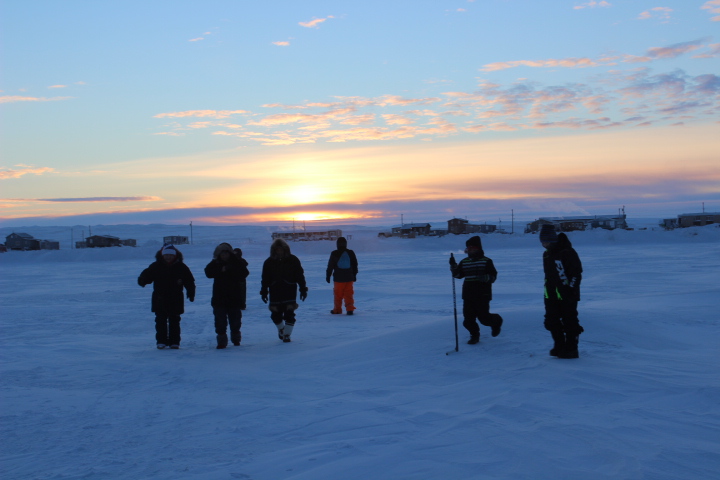
The Dene named it the “Deh Cho” which translates to “Big River”. The Inuvialuktun named it the “Kuukpak”, which translates to “Great River”. The Gwich’in named it Nagwichoojik, which translates to the “river flowing through a big country”. Every name that was attributed to the Mackenzie River related to the size of the river. No wonder, the Mackenzie River is a vast and mighty river: it is the largest river system in Canada stretching 4241 km long. In North America, in size, it is only second to the Mississippi River.
The “Big River” is much more than a reference for the NWTRPA Walking Challenge. It has a rich and storied history that dates back thousands of years. The river was a vital source of transportation, food, and resources for the Indigenous peoples who lived (and still live) along its banks. The river was a key trade route for the Dene, who used it to travel and trade with other communities.
In the late 1800s, the Mackenzie River became an important transportation route for the fur trade industry. European traders and trappers used the river to access the abundant fur-bearing animals in the region. As the fur trade declined, the Mackenzie River became an important transportation route for other industries, such as the oil and gas industry.

Today, the Mackenzie River is a vital resource for the people who live in the Northwest Territories. It is used for transportation, hydroelectric power generation, and recreation, such as fishing, boating and the Walking Challenge, obviously. The Mackenzie River is also home to a wide variety of plants and animals, including the threatened whooping crane and the iconic beluga whale – approximately 50 belugas were observed upriver near Aklavik in the Mackenzie River Delta in 2018.
Despite its importance, the Mackenzie River faces several challenges, including climate change and the threat of oil and gas development. However, with proper management and conservation efforts, the Mackenzie River will continue to be a vital resource for generations to come.